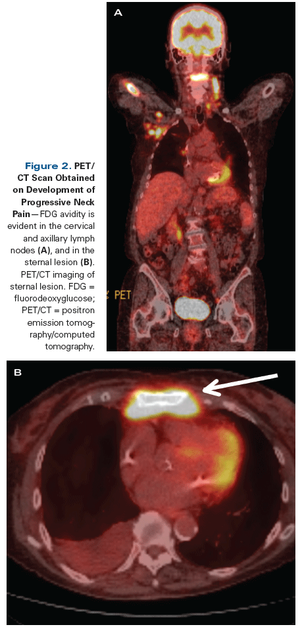
An 84-year-old woman with a history of Graves disease, hyperlipidemia, and hypertension presented to her physician with progressive fatigue and palpable bilateral axillary lymphadenopathy.

Your AI-Trained Oncology Knowledge Connection!


An 84-year-old woman with a history of Graves disease, hyperlipidemia, and hypertension presented to her physician with progressive fatigue and palpable bilateral axillary lymphadenopathy.

Biologic therapy for cancer may be defined as the use of compounds, or their derivatives, that can be found within the body to treat malignancy. The recent era of biologic therapy began with the identification and isolation of interferon (IFN)[1] and has been expanded with interleukin-2 (IL-2, aldesleukin [Proleukin]), the hematopoietic growth factors, and the retinoids.

Biologic therapies are an increasingly important part of cancer treatment. In this chapter, we review the current status of studies of colony-stimulating factors (CSFs), erythropoietin (Epogen, Procrit), thrombopoietin, the retinoids, and monoclonal antibodies (MoAbs). The interferons, interleukin-2 (IL-2, aldesleukin [Proleukin]), and adoptive cellular immunotherapy are discussed in a separate chapter.

In order to derive maximum benefit from treatment with chemotherapeutic agents, adherence to the established chemotherapy dose and schedule is imperative.

Published: September 1st 2000 | Updated:

Published: April 2nd 2005 | Updated:

Published: April 2nd 2005 | Updated:

Published: August 16th 2016 | Updated: